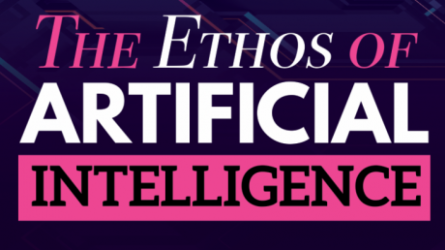Many cognitive scientists and philosophers think intelligence requires self-awareness and intention. Consciousness seems inextricably linked to intention. When we are conscious, we are intentionally directing our thinking toward something. It could be an object or person in our immediate field of perception, a difficult problem that needs solving, or it could be a memory that we’ve deliberately called to mind, or some combination.
The other distinguishing feature of consciousness is self-awareness. When we are conscious, we are aware of what we are directing our thinking toward; the object of our thought. Just as important, we are also aware of ourselves. We are aware that we, ourselves, are directing our thinking toward something. We are self-aware or self-conscious.
AI disembodied chatbots are not self-aware and they do not answer prompts with intention.
From the book, The Ethos of Artificial Intelligence, Chatbots and Intention

It is hard to fathom how an AI chatbot can be intelligent, how it knows or understands the text it is scraping from other sources and algorithmically spewing out. We might compare it to a calculator and ask “Does a calculator know or understand that three times four equals twelve?”
On the other hand, it certainly seems like AI chatbots have more sophistication and depth or at least breadth than a calculator. It’s not crazy to think they have more of a claim to understanding (and maybe intention) than a calculator. Which might mean that such things are not an either/or, not a ‘has’ or ‘doesn’t have’ kind of quality or feature.
And when we compare whatever a calculator or AI chatbot is doing to whatever we humans do, the difference is again maybe more of a scale than a stark contrast. I agree that (self-)awareness is one possible litmus test for consciousness but if we find ourselves in a Do Androids Dream of Electric Sheep? or Battlestar Galactica situation, how are we going to test for or measure or quantify self-awareness? How self-aware am I? Surely some of my thoughts are more intentionally and purposefully directed with awareness more than others, on some occasions more than others.
But when we cast our gaze outward, our natural (biologically evolved) egoism is probably more certain of our own self-awareness than others – just look at all those intentionless, barely self-aware, barely conscious people out there on autopilot, batted about by routine expectations, desires, and chemicals (our most cynical, judgmental voice sneers). But, just as we of course admit the consciousness of other humans around us (despite only seeing their bodies wander about and having to take them for their word), we may have to acknowledge and concede the consciousness (and thus intention(s)) of AI chatbots. I suspect, just as with human beings, this’ll be easier (and more inevitable) once they are more individualized in some single Persona (like in the movie HER) rather than seeming to be somehow dispersed and shared throughout the internet.